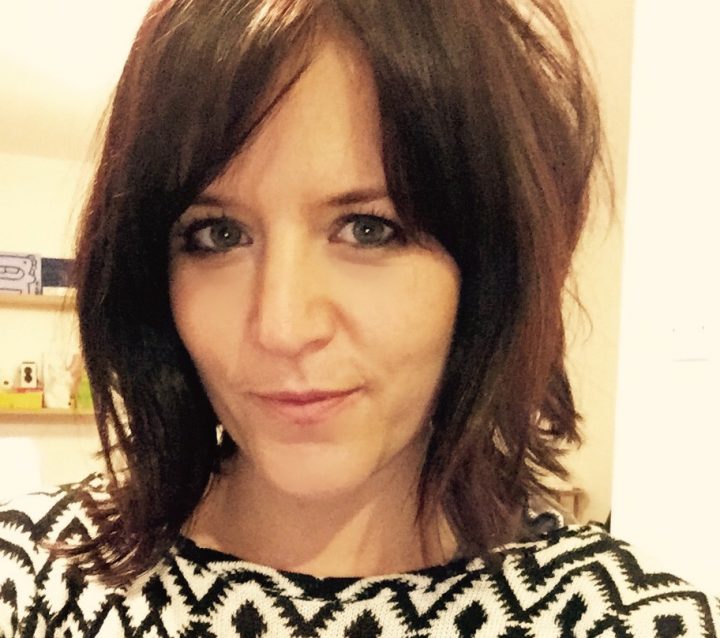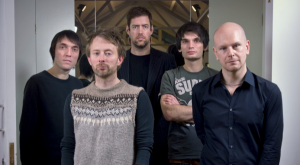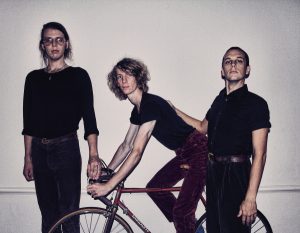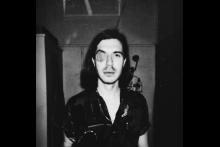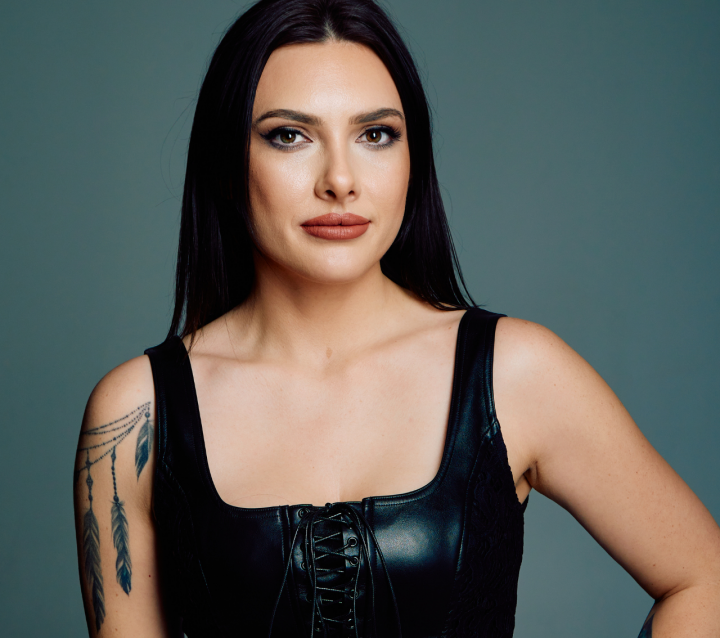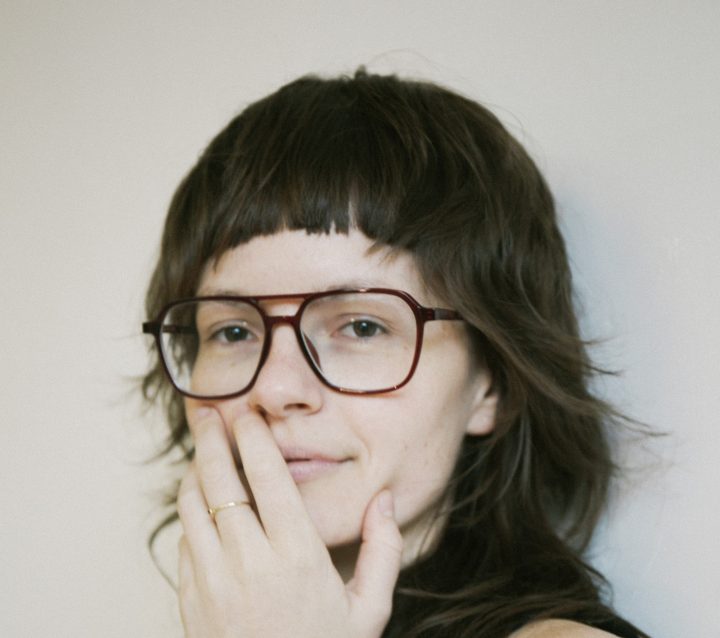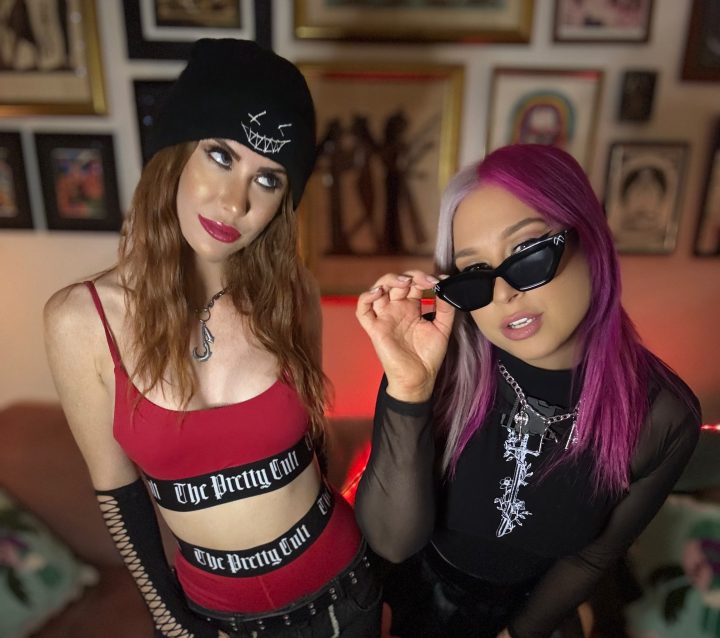
For those who are unfamiliar, tell us about Tiny Monster, what artists do you work with/have you worked with? What made you start the company?

Tiny Monster is a small, boutique music business that specialises in Artist Management, Project Management and Artist Development Services for artists and bands. On the management side, I manage Holy Holy, I help out Bill Cullen with Neil Finn when Neil is busy, and I am also on the verge of potentially signing a new act. On the development side I generally pick around 3 or 4 acts to work on at any given time, in various stages of development working with them in various different ways from A&R advice to project management and radio servicing. At the moment those include Ben Wright Smith, Alex L’Estrange, PLGRMs, Matt Black and Castlecomer.
I also do Artist Consultations with developing bands whenever I can fit them in, and how many of those I do completely depends on how busy all the above gets!
I started the company after over 10 years working at EMI and Universal. In my time as A&R Manager at Universal I started to notice there were a lot of young bands who had the same distressing complaint, some of whom I genuinely felt had potential. ‘I keep sending this EP/album out to community radio, managers, labels, booking agents and nothing is happening.’ I noticed there were a lot of people out there doing independent PR, but no one doing independent A&R and Artist Development, and I felt there was a need, and I was very interested in trying to fulfil that need somehow.
The management side happened because I really wanted to work with bands on a deeper level, on all aspects of their plan and career, so suddenly being in a particular role or “segment” or a label felt quite constricting! Just signing a band and making the record with them, or just working the PR or radio with them, felt – yes – the best word I can use is constricting! I wanted to be able to work on everything with them. The whole plan from start to finish. Both here and internationally.
So I resigned from Universal in May 2011 and started Tiny Monster. Soon after I started managing The Trouble With Templeton, and in May 2013, Holy Holy.
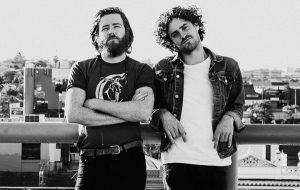 Holy Holy
Holy Holy
Describe a normal day in the life of Jess Beston..
That is the thing about Management! Every day is different and I LOVE that. I have worked in many different roles in the industry and this is the most challenging but also my favourite so far, and that is definitely one of the key reasons why. There really is no “normal”.
I wake up in Australia or somewhere else in the world, and either (a) launch into action and go straight to the gym to wake myself up before I even think about what I am doing because if I think about exercising I won’t do it, OR (b) make myself a cup of tea and do half an hour of responding to overnight/international emails in my pyjamas before jumping in the shower and driving to the office or meetings!
The job then entails any possible combination of all the following things: On the Holy Holy side I spend a lot of time on strategy and planning, so working on my daily planner for the band for the next 12 months (also with a view to the next 3 years); then liaising with the band on any aspect of that plan including rehearsals, recording sessions, how singles or albums are shaping up and if we are going to make deadlines, domestic show dates, international showcase and shows, video shoots, photo shoots etc, and working through possible conflicts with their other projects or personal lives to get the best looking roll out possible for that album / 12 month period.
Then also liaising with the label(s) and/or agent(s) or PR or radio people internationally on any possible aspect of that plan also, including domestic and international touring, festivals, single or video releases, and of course album release plans. Then there is grant writing to help us get funding mainly for international elements of that plan, looking into potential international partners to work with in one way or another (whether it be PR, radio, labels, agents, etc) and liasing with those people, again on certain aspect of the plan. And then there are the random things that come up occasionally, such as sponsorships, setting up insurance or making claims, any legal, contractual or accounts work that needs to be done, (it is surprising – or perhaps not surprising! – how many invoices there are to pay for a touring band in cycle), liaising with our lawyer, or our bookkeeper about the BAS etc and then of course there are the random one off things that happen. At the moment for us that is the fact that another band has started calling themselves Holy Holy, and they are unfortunately a David Bowie Tribute band who have some relatively famous members and have chosen to play some shows in the US in the wake of Bowie’s passing, so we have some Trade Mark & additional legal issues to discuss, decide on and action at the moment.
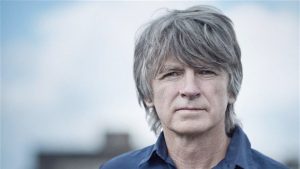 Neil Finn
Neil Finn
On the Artist Development side I may be giving advice to one of the bands I am working on at that time about a song structure, a producer, a mix, I may be writing a plan for them for their single or EP release, or I may be helping them service radio. I don’t do PR at Tiny Monster, so I may also be working with the PR person we have put in place on a plan for that Development client. I also do 2 hour consultations with developing artists, where I get all music, links & info relevant to their current situation, so I do a 3 hour prep period where I immerse myself in their music and their world, then attend the 2 hour consultation and give them advice on whatever it is they need at that time, ranging from feedback on the music or style or direction, or the music is complete so the consult is about the next steps they could take to help launch their song or EP, strategy, and helping them put together a “plan of attack” for their next stage.
Occasionally I wake up in another country and if that is the case, I am either there for meetings, or I am on tour with a band so I have meetings and shows and travel, or I am attending a conference like The Great Escape, that I am attending this week! More meetings and shows, networking events, (many put together by the mighty Sounds Australia!), and the occasional panel.
I noticed there were a lot of people out there doing independent pr, but no one doing independent a&r and artist development, and I felt there was a need, and I was very interested in trying to fulfil that need somehow.
How did you get your start in the music industry – what is your story of how you got to where you are today?
It’s funny, because in a way I can’t remember the start. I have deeply loved and been involved in all kinds of music for as long as I can remember. My mum said I started singing when I was 2. I used to just launch into these big high vibrato melodies – that she insists to this day were not screams or cries, they were operatic expressions! How funny. I then did music all through school, I was in every musical, jazz group, I was Head of Choir and Captain of my House where I had to write all the cheers and write the house musical that year. I left school and did a BA majoring in Music at Sydney Uni where my favourite class was orchestration and composing, and was given a teacher with the Australian Opera. Then… to my father’s despair…. I discovered Radiohead and Tool and Nine Inch Nails and Smashing Pumpkins and literally everything changed. I was actually going to be an Opera singer. Then I announced I was moving to London, where I started working at HMV, promptly joined a band, we didn’t have a bass player so I bought a bass, and we were playing our first show at Dublin Castle a few weeks later. It was THE BEST. Being in a room creating a song with musicians I cared about was so so so much more rewarding than singing someone else’s music in another language. It was real, direct, and had a deep impact on me. It was the kind of music I realised that I very much identified with and it made me feel so much, and certainly made me feel like I was on the right track with my life.
I worked at HMV in Piccadilly Circus and played in bands for a few years, in London and then back in Sydney, and then in 2001 I had this really strong feeling like I needed to get a job on the industry side of music. I had NO IDEA what that meant. So I did a bit of research and found out that almost ALL my favourite bands were signed to a company called “EMI”. So I wrote them a letter. If I recall correctly – it was 2 PAGES LONG. (That poor HR person. I mean seriously. I rabbited on about how much I loved Radiohead, Idlewild, The Verve, The Beatles & Supergrass and how many festivals I had gone to while I lived in the UK and did I mention how much I love Radiohead? I think it was essentially a fan letter. Oh my god.) Anyway…. I got an interview.
There were no jobs available there then, but 6 months later when one came up, I got it! I couldn’t believe it. I started in Licensing, which is possibly the least Jess Beston job imaginable, but I LOVED IT. I loved being around music all the time and I couldn’t believe we were given free cds, it completely blew my mind. The Vines released “Highly Evolved” at that time for example, and I couldn’t believe I had anything at all to do with working on it, and that I got a free CD for my car. Wow. After a little while a few people (including one of my dearest friends now and absolutely one of my closest “fellow-manager- confidants”, who was the Head of Capital at the time, Cathy Oates), noticed that perhaps Licensing wasn’t quite right for me, and I got promoted into the PR department. A much better fit. As I moved through that company I realised that the industry side was WAY more me than the playing in bands side, so I quit my band and focused on my career. I absolutely loved it. I was at EMI for a few years and was then head hunted by George Ash to go over and be A&R Manager at Universal. An even better fit! I was there for just over 4 years before I resigned to start my own business.
Have you got any advice for people wanting to start a career in the music industry?
Be passionate, genuine, honest, and work bloody hard. Make sure you definitely want to do it, because there ain’t much money in it nowadays. You do it because you LOVE IT and you believe in Australian music. Be prepared to work for not much monetary reward for a while, but remember how lucky you are to be doing what you love during that period, (as opposed to so many people in life), and be positive, and stick with it! Enjoy any perks that come with it, including working with bands you love, going to shows for free, meeting people who inspire you, going to festivals etc. Don’t forget to enjoy the journey, learn from everyone you can possibly learn from, be respectful and kind, and keep working hard. YOU CAN DO IT!
Make sure you definitely want to do it, because there ain’t much money in it nowadays. You do it because you love it and you believe in australian music.
Do you feel that higher education is necessary to establish a career within the music industry?
No. But it’s not a bad idea to get one. I got one, and I am glad I did. It was very ingrained in me during my school education that it was vital. So when I entered the industry and found at least half the people I worked with did not have a tertiary education, I was quite shocked. The short answer is – if you are incredibly passionate and work incredibly hard – you may not need one. However, it certainly doesn’t hurt. Also, I think my education greatly helped me when it comes to tasks like planning and grant writing, although I think that was my school. It was quite strict, and extreme with deadlines etc, and I guess I have always been a little bit competitive too. So that combination means I want to do things incredibly well so I work very hard on any given task such as my plans or my grant applications, and I make sure I GET THINGS DONE.
What tips would you give an artist trying to succeed in Australia? Is there a certain route they should take?
Be prepared to work hard. Know it will take time to build, and know that that is part of what will make it great. The way most successful career bands build a long-term career is through a gradual long-term build, not being an overnight success. Once or twice a year a song penetrates in an extraordinary way, and that’s wonderful, (sometimes), but know that most of the time that is not how it happens, that that is the exception not the rule, so if you’re going to do embark on this journey, you need to be deeply committed, and prepared to not make money for the first few years. The “complete” answer to this question is incredibly extensive to be honest, and is different for every act. I actually created my consultation service for this very reason! But in short – resilience, hard work, passion, being comfortable with the knowledge that artist development and building a story and your team can take time, and possibly the most important one: treating people with kindness and respect. And that means everyone from the guy behind the bar at the venue you’re playing, to the band you are supporting’s sound guy, and most certainly to your band mates and team. (No one wants to work with an arsehole.)
Have you had to overcome any challenges or adversity in your career, and if so how did you approach them?
Generally I find I am the kind of person who can get along with most people, so over quite a lengthy career, I have really only come across two people who I have had significant issues with, but both situations were incredibly challenging for me. One was a boss at a company I worked for, one was a member of a band I worked with. Both issues and times were incredibly challenging for me, because I absolutely loved what I was doing at the time, I was deeply, deeply invested in it, and it was extremely difficult to leave. But once I did, I felt so much better. I think it’s important to remember, if you are good at what you do, and you work hard, and you believe in yourself, the next situation in life you create for yourself will be successful and rewarding as well.
I am not a big fan of working in a situation where the people involved aren’t mutually respectful, encouraging, caring, and considerate of each other. Especially when everyone is putting in 150%. There is just no room for it. It is challenging enough to be truly successful in this industry even if you have perfect music, the perfect plan, and the perfect team! So that’s what I look for in any working situation now. Relationships that are healthy, positive, constructive, and sustainable, with honest communication.
How do you manage to juggle career with having a social life? Do you just combine the two? Or do you make a distinct boundary between personal and career at times? What are your tips here?
A large portion of my time is spent working with, and then socialising with, people in the industry, many of whom I have known for over 15 years now and they are some of my dearest friends. So those worlds do merge, for sure. In this industry we are all so busy, it is important, for example, to see “those nights at gigs you have to go to” as social time as well, and catch dinner with that friend you haven’t seen for far too long prior, and take them along. Having said that, I always make sure I get in plenty of time with my mum, doing yoga and pilates, and I visit my brothers and sister who live overseas whenever I can. Luckily I can work from anywhere in the world, so I can do that, I just set up my lappy wherever I am, so if there are cheap flights somewhere I will grab them when I can. Also, I still have several best friends who have nothing to do with music – one is a lawyer, one is a social researcher, one works in reality TV in LA, and one her focus is being a mum of 3 at the moment, and I make sure I see them as regularly as possible, because they’ve been my best friends forever and I love them to death, and also it helps me remember I have a life outside this musical world!
My tip is this: It is so fantastic to be in love with what you do and because of that dive in and work like crazy most of the time, and let it engulf your life. But balance is incredibly important. Be sure you are doing what you need to do to stay sane, because being highly stressed for an extended period of time can lead to a burn out, and you are no good to anybody if that happens, least of all yourself. The way I make myself work on that sometimes is to think less of myself and more like – “you won’t do as good a job as you could feeling this way, so just STOP for a bit!” And that helps me get the little break I need, or to alter my lifestyle a bit to include more sleep or more yoga, or maybe plan a little holiday.
As a manager you are going to go through times where you are in cycle and have activity all over the world and you are working literally 14-16 hours a day (maybe more once your band gets bigger, let’s hope I get to find out!) But squeeze in those yoga sessions and dinners with your friends and mum hangs as much as you can, otherwise things can get bumpy.
Because of the nature of the job, you are going to be better at getting that balance right some times more than others, but that is actually ok. Just make sure you get it right sometimes, and get breaks when you need them. Keep an eye on yourself or get a trusty friend or mum to do that for you!
Be sure you are doing what you need to do to stay sane, because being highly stressed for an extended period of time can lead to a burn out, and you are no good to anybody if that happens, least of all yourself.
What is the most rewarding experience that you’ve been a part of during your career? (I’m sure there’s a few – feel free to include more than one!)
I feel overwhelmingly lucky quite regularly! Being a manager and running your own business comes with some significant challenges, certainly financially, certainly for the first few years, but that for me has always been offset more that sufficiently, by those incredibly rewarding moments that you share with your bands.
The small regular incidents are things like Holy Holy getting another song added to the radio and I hear it for the first time live on air, we sell out the biggest venue we have yet and there are a crowd of almost 1,000 people there – for them, singing along to every word, or playing to several thousand people at Splendour, or 8,500 supporting Vance Joy at Riverstage, or the boys get asked to do an interview with someone they really respect and I can see how much it means to them, or we get nominated for or win an award or get an incredible review in a great publication, or (and this may be my favourite), I am backstage with them at a show, or away with them somewhere, and I get to be a part of this incredibly special moment when they write something new or a song starts to come together. Those moments are literally magic and I feel so incredibly lucky to be there when those moments happen. It also makes a difference that they have become such dear friends of mine, and I am so proud of them and us and where we have got to so far, and so inspired and excited by where we are at, and everything we have lined up to come next. It is constantly rewarding working with these particular humans, which is not always the case, and I feel incredibly lucky.
The biggest one for me was when the members of Holy Holy started to see a return on their investment. That happened in the last 12 months, and it was one of the most rewarding days of my career. I don’t think people realize how much time and work it takes to reach a point where the business breaks even and members start to make money. It is my aim to help get them to a point where they could support themselves and their families from their music. I think that would be the most rewarding day of my life.
If you could work with one Australian artist that you have yet to work with, which artist would that be?
That is a secret…. I am working on working with them right now!!
Who are your role models in the industry whether they be international/Australia?
My role models who I have been lucky enough to know or work with in some way, some are dear friends, who have taught me significant, life-changing things about this industry and/or management and/or running your own independent music business:
Australia: Fifa Riccobono, Bill Cullen, Gregg Donavan, Stu Macqueen, Cathy Oates, Correne Wilkie, Millie Millgate, Glenn Dickie, Maggie Collins, John O’Donnell, Stephen Wade, Monique Rothstein, Vanessa Picken, George Ash, Michelle Porto, Jacquie Louez, Tim Manton, Rebecca Reato, Emily Kelly and my Mum! They are a total inspiration and blow my mind basically daily.
Internationally: Simone Raymonde from Bella Union in the UK, Terry McBride from Nettwerk in Canada, Frank Riley from High Road Touring in the US, Jamie Emsell from Communion in the UK, and Debbie & Katie Gwyther from Fear PR in the UK.
What does 2016 hold for yourself and Tiny Monster and the artists you work with? Any exciting things that you can tell us about?
SO MANY THINGS! Holy Holy will have 2 new singles out this year then a record next year, and I am freaking out with excitement about that. I was just in Melbourne for their first recording session and they literally blew me away. I have no words. I am also neck deep working on the domestic and international touring for the band so some exciting developments there too, which I can’t wait for us to announce later in the year! I still have to pinch myself that I get to work with my favourite band, every day. (Ok, Radiohead is my favourite band. But Holy Holy are absolutely my second favourite band.) The development side of my business is also flourishing, with all sorts of exciting plans going on for all of those bands.
Top 3 artist you’re currently listening to?
What’s your go-to karaoke song?
“Dreams” by Fleetwood Mac! What a tune. I also crack out “Killing Me Softly” by Roberta Flack every now and then, but with that one you have to be careful, and respect the tone of the moment. That song can be heavy as a wet blanket! Or it can get a room full of mates swaying arm in arm in tears of ecstatic joy. It’s all about “assessing the mood”… 😉
